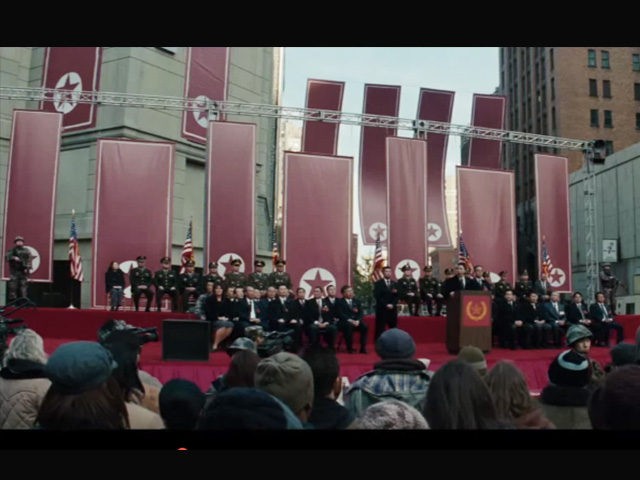Summertime is synonymous with Hollywood’s blockbuster season, when film studios release their latest action flicks to score big at the box office.
Chances are, you’re one of the millions of Americans who purchased a movie ticket to one of these Hollywood films this summer. While you may have checked the movie’s ratings beforehand, there’s one rating that you probably didn’t know about: The approval of the Chinese State Administration of Press, Publication, Radio, Film and Television, otherwise known as SAPPRFT.
SAPPRFT is the Chinese Communist Party’s official censorship agency, and Hollywood films are increasingly subjected to its content review process—even those shown for American audiences. The agency has a history of rejecting American films for their positive portrayal of the U.S. military or any negative portrayal of China’s dismal human rights record and labor conditions.
Hollywood studios now produce films without SAPPRFT’s approval at their own peril. As China becomes the world’s largest movie-viewing audience—expected by 2017—so few American films are allowed into the country each year that producers actively compete to curry favor with Beijing’s Communist officials.
The 2012 remake of Red Dawn, for example, originally featured Chinese soldiers invading an American town, but moviemakers changed the invaders into North Koreans after receiving complaints from China. Why the outrage? Chinese officials “were not interested in their country being perceived as a violent military threat.”
Even more concerning is that state-funded Chinese companies are buying up U.S. film studios and movie theater chains, assuming even greater control of production and distribution channels. The Chinese firm Dalian Wanda has already purchased Legendary Entertainment—the producer of Jurassic World and other blockbusters—and is now seeking a 49 percent share of Paramount Studios, the $5 billion producer of Transformers and Interstellar. (Wanda has received at least $1.1 billion in subsidies from the Chinese government.)
Wanda also owns AMC Entertainment and is in the process of merging it with Carmike Cinemas, which would place 8,380 screens in more than 600 movie theaters nationwide under Chinese control.
“Chinese censorship affects not only Chinese audiences, but also audiences in the United States and around the world,” a recent U.S. government commission report noted. “Hollywood confronts broad consequences when it does not appease Chinese regulators: Captain Phillips found itself $9 million short of its anticipated revenue after finding itself unable to distribute in China because of the film’s positive portrayal of the United States and U.S. military.”
Fortunately, there are several steps that Congress can and should take to stem the rise of Chinese propaganda.
First, legislators must broaden the scope of the Committee on Foreign Investment in the United States (CFIUS), an interagency committee which reviews foreign acquisitions of American companies that may impact national security and other strategic sectors. The CFIUS charter should be expanded to cover high-profile U.S. communications assets, especially when state-funded foreign companies like Dalian Wanda are involved.
Congress and the Department of Justice should also review the longstanding Foreign Agents Registration Act (FARA), which requires disclosure when foreign entities seek to lobby or influence the public through propaganda or other means. By requiring the disclosure of foreign-owned media prone to censorship, the American public would gain a better understanding of foreign propaganda plays—and their impact on U.S. public opinion.
In addition, such activities should be subject to disclosure to the Securities and Exchange Commission (SEC) in public filings, so that the federal government and interested investors gain a deeper insight into foreign censorship. As it stands now, the scope of Chinese (and possibly other) forms of foreign censorship in Hollywood is difficult to discern. A standard SEC disclosure process would help shine a brighter light on the nature and frequency of these censors.
Finally, the White House and Congress must encourage Hollywood studios to adopt a voluntary code of conduct for film, television, radio, and written media—ensuring that content creators are not subject to government censorship. Much like the movie industry adopted the parental guidance ratings system in the 1960s, the American public has a right to know whether the movie that they are paying to see is free of censorship or not.
Americans would be outraged if the U.S. government censored Hollywood. We should demand nothing less of foreign governments like China.
Richard Berman is the president of Berman and Company, a public affairs firm in Washington, D.C.

COMMENTS
Please let us know if you're having issues with commenting.